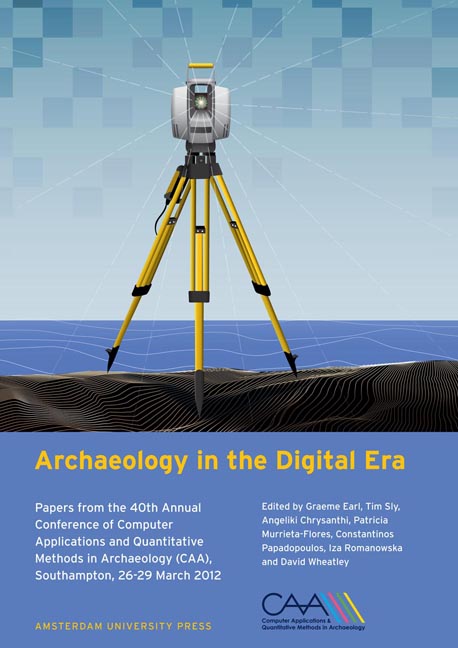 Archaeology in the Digital Era
Archaeology in the Digital Era Defining and Advocating Open Data in Archaeology
Published online by Cambridge University Press: 16 February 2021
Summary
Abstract:
“A piece of content or data is open if anyone is free to use, reuse, and redistribute it - subject only, at most, to the requirement to attribute and share-alike” (http://opendefinition.org/). Driven by demands for greater transparency from government, general freedom of information and an increased awareness of the unanticipated re-use values of existing information, Open Data has seen dramatic growth in the past two years. Is archaeology part of this general trend? Our aim is to explore what it means to make archaeological data open and what processes are required to make it happen in a satisfactory way. There are three major goals: (a) individual and institutional advocacy, (b) ethical discussion and consensusbuilding, and (c) knowledge transfer (licenses guidance, wider academic context, repositories etc.). In this paper, we explore some of these issues in greater detail.
Keywords:
Open Access, Open Data, Open Archaeology, Open Knowledge Foundation, Linked Open Data, Knowledge Transfer
Introduction
‘Open’ is increasingly invoked as an attractive thing to be, across a host of human behavioural domains from scientific practice to corporate responsibility to governmental action (to name but a few). The concept readily suggests notions of public accountability, transparency of practice, plurality of opinion and scientific repeatability, thus providing a catchy banner for the advocacy of a range of perceived public goods. In contrast, while being ‘closed’ might occasionally carry positive connotations of increased security, it is less marketable and causes significant problems for a domain whose advances are predicated on a developing and accessible corpus. Some aspects of the open agenda are now several decades old and have had a tangible impact on many different sectors. For example, two well- established international initiatives are Open Access (e.g. where publications such as journal articles are made publicly available without a fee) and Free/ Libre and Open Source Software (FOSS, where source code is made available under liberal licenses that encourage onward use and modification), both arguably expressions of a wider change in the free circulation of information and knowledge. A small minority of archaeologists have also been embracing, discussing and/or contributing to such initiatives for some time, particularly those with an interest in customising digital tools or encouraging broader archaeological participation and dialogue beyond a few well-resourced Western institutions (e.g. in line with the participatory agenda espoused by World Archaeology). Needless to say, the Web has been a catalyst for these changes.
- Type
- Chapter
- Information
- Archaeology in the Digital EraPapers from the 40th Annual Conference of Computer Applications and Quantitative Methods in Archaeology (CAA), Southampton, 26-29 March 2012, pp. 449 - 456Publisher: Amsterdam University PressPrint publication year: 2014


